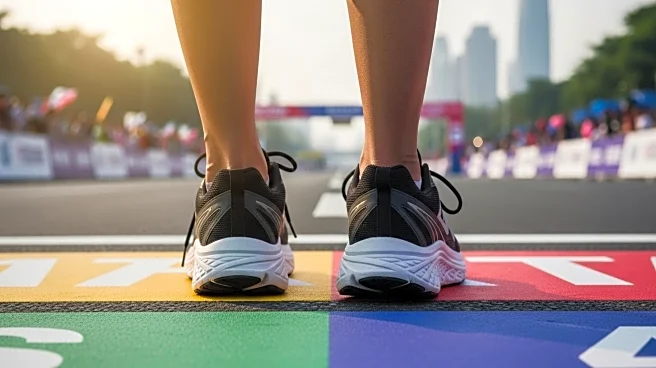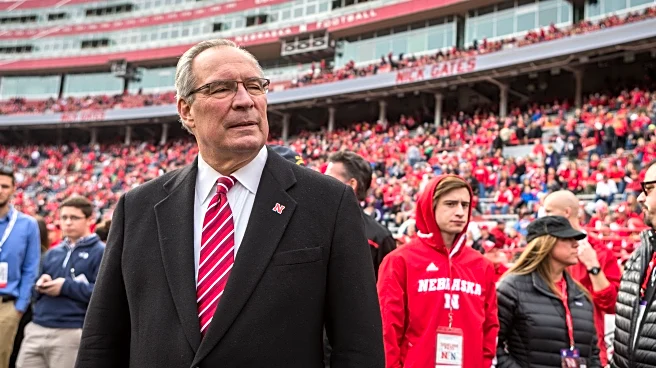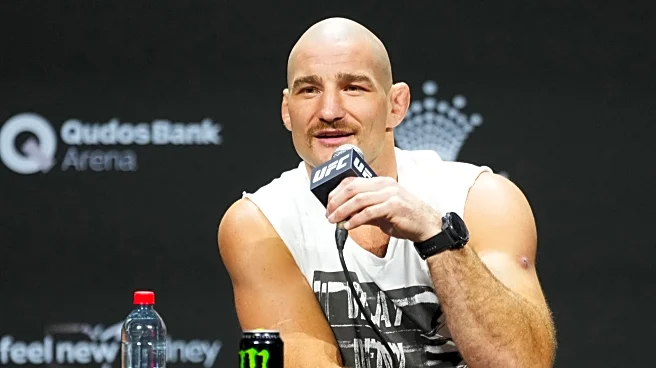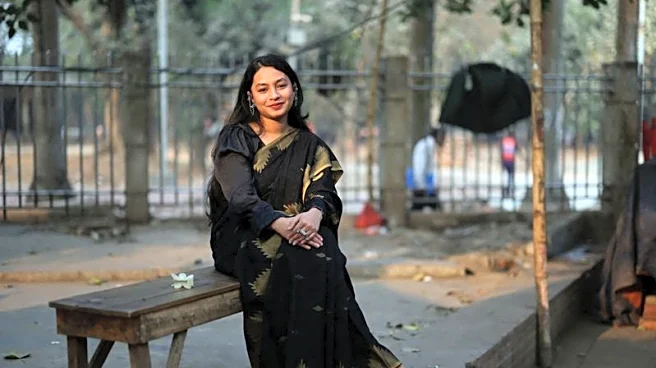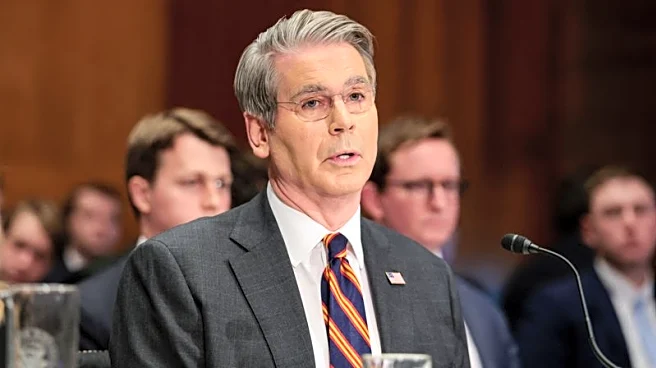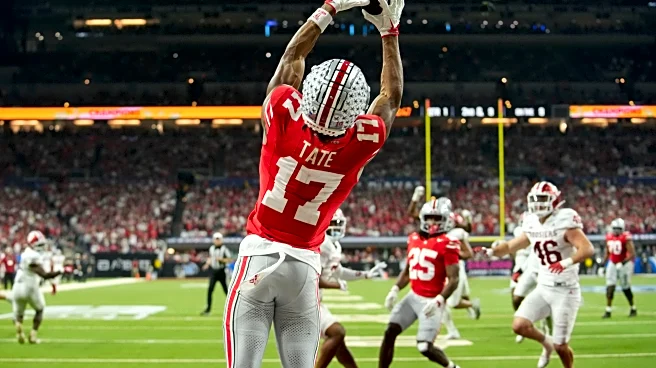What is the story about?
What's Happening?
Jacob Kiplimo from Uganda and Hawi Feysa from Ethiopia emerged victorious in the men's and women's races at the Chicago Marathon. Kiplimo completed the marathon in a personal-best time of 2 hours, 2 minutes, and 23 seconds, finishing 1 minute and 31 seconds ahead of Kenyan runner Amos Kipruto. Kipruto, the 2022 London Marathon winner, finished second, while Alex Masai, also from Kenya, secured third place. Conner Mantz set a new U.S. record by finishing fourth. Kiplimo, who recently set a world record in the men's half-marathon, has previously won bronze medals in the Olympics and world championships for the 10,000 meters. In the women's race, Hawi Feysa won with a time of 2 hours, 14 minutes, and 56 seconds, leading a 1-2 finish for Ethiopia. Megertu Alemu finished second, and Magdalena Shauri from Tanzania came in third.
Why It's Important?
The victories of Jacob Kiplimo and Hawi Feysa at the Chicago Marathon highlight the dominance of East African athletes in long-distance running. Kiplimo's performance, setting a personal best and breaking the U.S. record, underscores his growing prominence in the marathon circuit. His achievements contribute to Uganda's reputation in athletics, while Feysa's win reinforces Ethiopia's strong presence in women's marathon running. These results may influence future sponsorships and athletic investments in these regions. Additionally, Conner Mantz's record-setting performance could inspire increased interest and investment in U.S. long-distance running, potentially leading to more competitive American athletes in international marathons.
What's Next?
Following their victories, Jacob Kiplimo and Hawi Feysa are likely to attract attention from sponsors and athletic organizations, potentially leading to increased opportunities and endorsements. Kiplimo's record-breaking performances may position him as a favorite in upcoming international marathons, including potential participation in the Olympics. For Conner Mantz, setting a new U.S. record could lead to increased support and training opportunities, aiming to further improve his performance in future races. The Chicago Marathon results may also prompt discussions on training methodologies and strategies among U.S. athletes and coaches to enhance competitiveness in global events.
Beyond the Headlines
The success of East African runners like Jacob Kiplimo and Hawi Feysa in the Chicago Marathon reflects broader socio-economic factors, including the role of running as a pathway to international recognition and financial stability for athletes from these regions. Their achievements may inspire young athletes in Uganda and Ethiopia, promoting sports as a viable career option. Additionally, the marathon results could influence cultural exchanges and collaborations between U.S. and East African athletic communities, fostering mutual growth and understanding.
